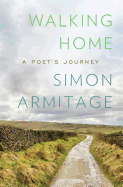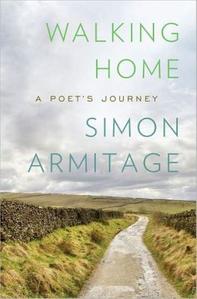

Instead of traversing the trail from south to north, as is the custom, Armitage decided to proceed in the opposite direction so he would finish in the town of Edale, near his home. The other reason for his choice of direction--the sense that this way he'd be walking downhill--turns out to be hilariously wrongheaded. Armitage financed his trip with nightly poetry readings, and he's meticulous about recording his take at each stop, along with all the other odd objects audience members deposited into the sock he passed for the voluntary offering.
There are no wild animals or outlaws to menace Armitage along the way, but he recounts some frightening moments when he's lost in the mists of the Cheviot Hills or scrambling up a narrow path on the mountain ominously known as Cross Fell ("a truly terrible place"), where he eventually beholds "a dizzying vastness full to the brink with nothing but light and air." The boggy moorlands Armitage navigates bring to mind the works of the Brontë sisters, and he remarks on the hordes of tourists (many of them Japanese) who flock to the ruined farmhouse at Top Withens that may have inspired the Earnshaw house of Wuthering Heights. Armitage shares the path at times with a motley crew that includes his wife and daughter and a college friend nicknamed Slug. Their quirks and the litany of odd English place names--from the waterfall known as Cauldron Snout to Blakehopeburnhaugh to Buttertubs Pass--only add to his account's consistent charm.
The appeal of a book like Walking Home turns largely on the likeability of its narrator, and Armitage scores high on that scale. Possessed of an ample supply of sharp and self-deprecating British wit, he's erudite but still in most respects an Everyman. Perhaps best of all, he concludes his journey in a way that's as surprising for its candor as it is completely satisfying. --Harvey Freedenberg
Shelf Talker: English poet Simon Armitage offers an engaging account of a 19-day trek across the spine of his native country.

